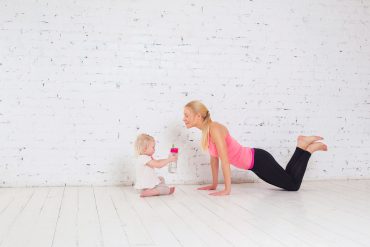Avoid plastics and hormone disrupting chemicals
The products you use for personal care, to clean your house and for food preparation can influence your health and fertility. As well as affecting your hormones, plastics and hormone disrupting chemicals can also affect the types and variety of bacteria in your gut and reproductive tissues.
When choosing toiletries, laundry products and air fresheners you should avoid anything that contains: phthalates, fragrance or parfum, dioxins, triclosan, bisphenols, perchlorate, and parabens.
In the kitchen, you should avoid non-stick pans and cookware, plastic food containers, food and drink cans, and plastic chopping boards. It’s especially important not to heat food in plastic containers or to use plastic chopping boards as the plastic can end up in your food.
The best way to avoid disruptive chemicals is by keeping all of your products as simple as possible and sticking to items made of ingredients or materials you recognise. There are apps which can help you to check products by scanning their barcodes such as Chemical Maze or Yuka.
Support your microbiome
The uterus, the vagina, and the male reproductive tract contain bacteria and fungi that either help to keep the area healthy or contribute to inflammation and disease. Collectively they are called the microbiome.
A disrupted microbiome can interfere with fertility due to the way some bacteria stimulates the immune system and causes inflammation. This can affect the function of sperm or how easily a fertilised egg can implant. Certain strains of bacteria are also associated with miscarriage and premature birth.
In clinic at Grow Naturopathy, I work with couples to assess if microbiome testing is needed and support them to make improvements.

It’s not all about the ladies
Sperm health has been declining for years, most likely due to changes in the environment and increased exposure to hormone-disrupting chemicals. The healthy habits listed above will help with sperm health, but there are also some additional steps men can take.
It is best to avoid tight fitting underwear, pressure on the testes, hot baths and saunas, and holding laptops, phones, or tablets on or near the lap where radiation can interfere with sperm development.
I’m already going through IVF and it hasn’t been straightforward
Unfortunately, IVF isn’t a guaranteed success the first time around and the average success rate after three cycles is about 50-60%. You can increase your chances by improving your health and making lifestyle changes, just like with natural conception.
If you’re considering IVF or you’ve already started the process, Grow Naturopathy can offer support to help you conceive in collaboration with your fertility specialist team.
Let’s work together and get you pregnant faster
Grow Naturopathy offer telehealth appointments across Australia and New Zealand, and face-to-face appointments in Ipswich, Queensland. You can book at www.grownaturopathy.com.au.










